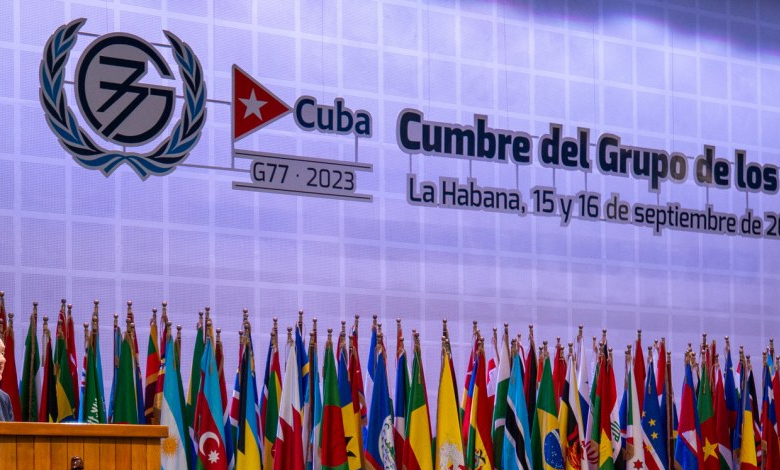Credibility of COP28 deal to ‘transition away’ from fossil fuels rides on historical polluters

Pedro Pedroso, the outgoing president of the G77 plus China bloc of developing countries, recently spoke to the Guardian as part of an exclusive interview, raising serious concerns over the landmark COP28 deal made in Dubai last year potentially failing.
Participants at the COP28 Summit reached an agreement to “transition away” from fossil fuels. But Pedroso stressed that the credibility of the deal depends on the biggest historical polluters rethinking current plans to expand oil and gas production.
It’s easy to label emerging economies as climate villains
The major developed countries – that also tend to be the most important polluters – must deliver adequate finance for poorer nations to transition and adapt to the climate crisis. The Cuban diplomat said the challenge now is to translate the COP28 deal into meaningful action.
The EU’s Copernicus Climate Change Service recently confirmed 2023 as the hottest year on record. The US, UK, Canada, Australia and Norway account for 51% of the total planned oil and gas expansion by 2050, according to research by Oil Change International.
It’s very easy to label some emerging economies, especially the Gulf states, as climate villains, but this is very unfair by countries bearing historic responsibilities, Pedroso noted, emphasising the nations have been trying to deviate the attention away from themselves.
The G77 plus China group is the largest bloc operating in the UN climate talks. The diverse coalition includes the most populous countries and emerging economies; significant fossil fuel producers; and some of the most climate vulnerable countries on the planet.
Most countries belong to multiple blocs, that are likely to have competing priorities. But developing countries have almost always been united in demanding that developed countries honour their legally binding obligations under the 2015 Paris accord.
Read More: Polar bears have shrunk to two-thirds of their previous size in just 30 years
Major oil and gas producers’ deepening focus on climate action
Essentially, for the international community to transition away from fossil fuels, developed countries must go first, stop expansion plans and offer the rest of the countries fair financial assistance to help them move towards the same ends.
Following COP28 in the UAE, Azerbaijan and Brazil are set to host COP29 and COP30 in 2024 and 2025, respectively. Pedroso said the fact that the major oil and gas producers are ready to host the climate talks shows a commitment to do something for the environment.

 2023 is confirmed as the warmest calendar year on record, with a global average temperature of 14.98°C, 0.60°C above the 1991-2020 level, overtaking 2016, the previous warmest year.
2023 is confirmed as the warmest calendar year on record, with a global average temperature of 14.98°C, 0.60°C above the 1991-2020 level, overtaking 2016, the previous warmest year.



